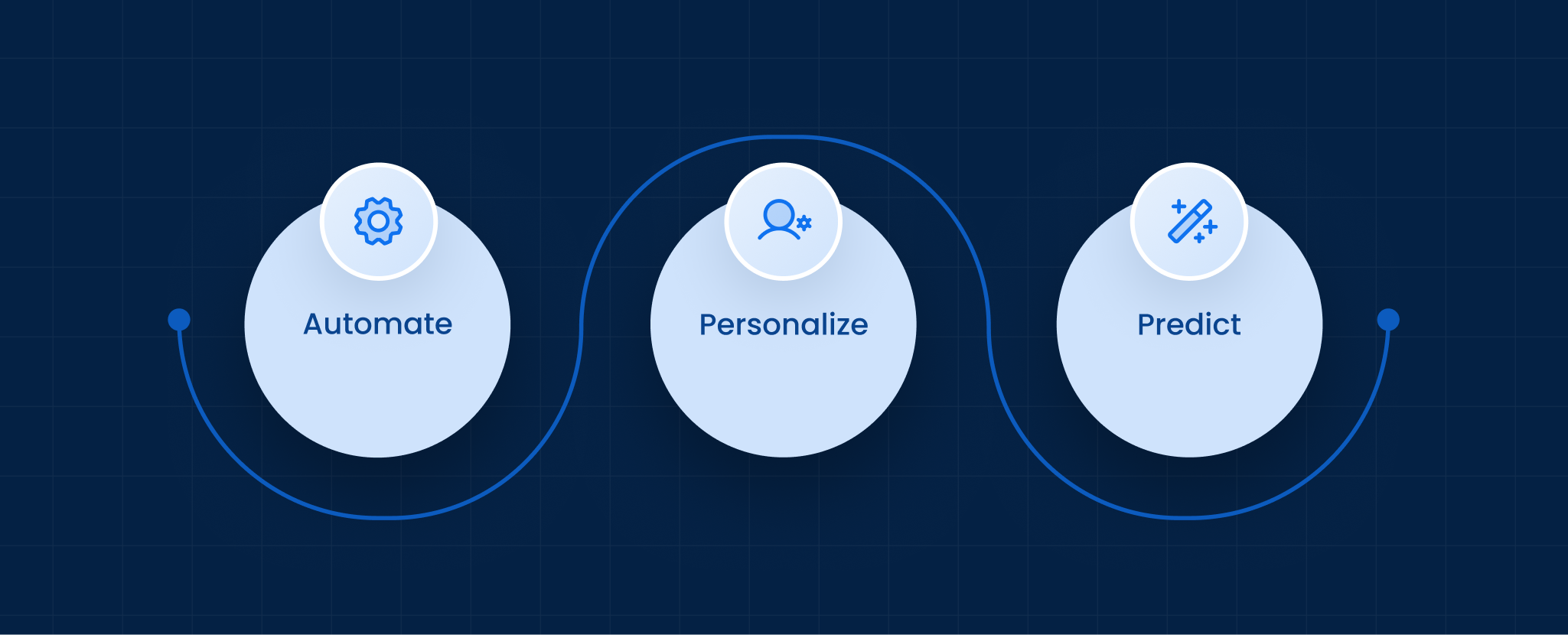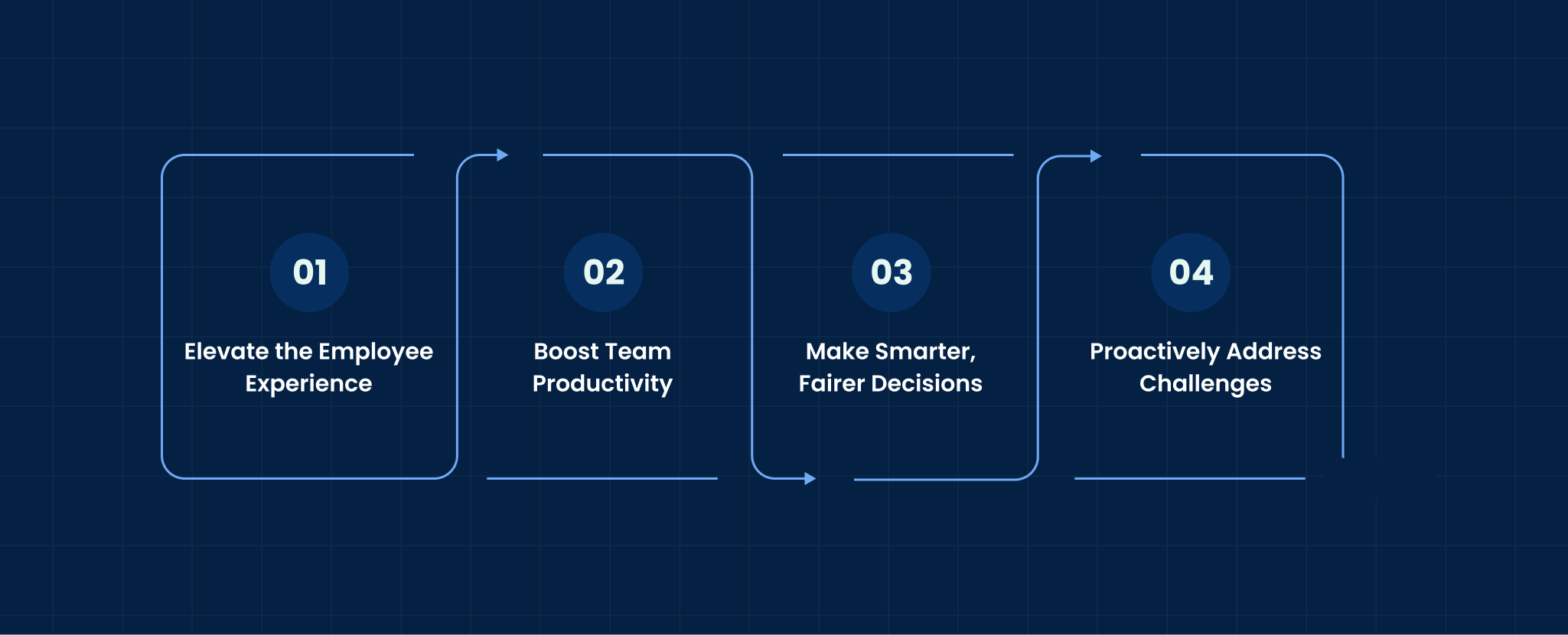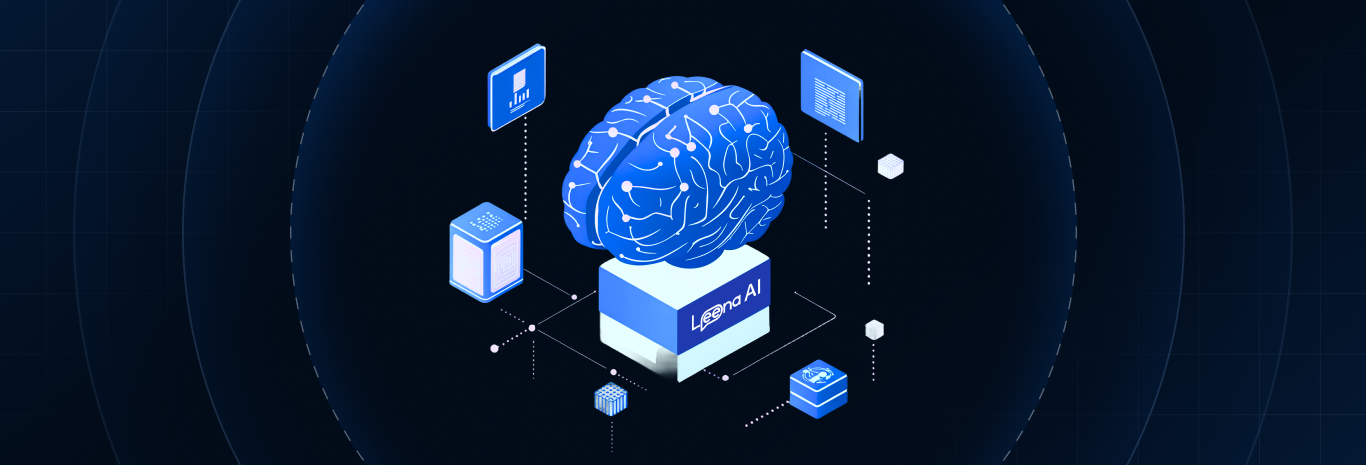Introduction
As a people leader, you’re at the heart of the organization. You’re focused on nurturing talent, fostering a vibrant culture, and ensuring every employee feels valued and productive. However, the daily administrative burden can often pull you and your team away from that crucial mission. That’s where AI tools for HR come in, not as a replacement for the human touch, but as a powerful partner to enhance it. These tools are designed to handle the repetitive tasks, uncover deep insights, and free up your team to focus on what truly matters: your people.
What are AI Tools for HR?
Think of AI tools for HR as a team of incredibly smart and efficient assistants. These aren’t robots in the physical sense; they are intelligent software programs designed to understand, manage, and optimize human resources tasks. For instance, instead of an HR professional manually sifting through hundreds of resumes, an AI tool can instantly identify the top candidates based on the skills you need. Essentially, they use smart technology to automate processes and provide data-driven recommendations, helping you make faster, more informed decisions about your workforce.
How AI Tools for HR Work
You don’t need a degree in computer science to understand how these tools operate. At their core, AI tools for HR work by analyzing vast amounts of data to recognize patterns and make predictions. Imagine you’re trying to figure out why talented employees in a specific department are leaving. An AI tool can analyze exit interview notes, performance reviews, and compensation data to identify hidden trends you might have missed, like a manager who needs better leadership training or a gap in career pathing.
They learn from your company’s information to:
-
Automate routine tasks like answering frequently asked questions.
-
Personalize employee experiences, such as suggesting relevant training courses.
-
Predict future outcomes, like identifying employees at risk of leaving.
In short, they act as a strategic advisor, giving you the insights needed to be proactive rather than reactive.

Key Benefits of Using AI Tools in HR
Integrating AI tools for HR into your strategy isn’t just about efficiency; it’s about fundamentally transforming the employee experience and the value your department delivers. The benefits are clear and directly impact your most important goals.
- Elevate the Employee Experience: Employees today expect instant, consumer-grade support. AI-powered assistants can answer questions about benefits, payroll, or company policies 24/7, meaning your people get the help they need immediately, without waiting for an HR team member to become available. Consequently, this boosts satisfaction and makes them feel supported.
- Boost Team Productivity: Your HR business partners are strategic assets. However, they often get bogged down by administrative work. AI tools for HR can take over these repetitive tasks, freeing up your team to focus on strategic initiatives like leadership development, culture building, and one-on-one coaching.
- Make Smarter, Fairer Decisions: AI provides unbiased, data-driven insights to support your decisions. Whether you’re working to improve pay equity or debias your hiring process, these tools can analyze data objectively. This helps you build a more fair and inclusive workplace while grounding your strategy in solid evidence, not just intuition.
- Proactively Address Challenges: Instead of waiting for the annual engagement survey to discover problems, AI can provide real-time sentiment analysis. This allows you to spot dips in morale or identify flight risks early, giving you the chance to intervene and retain your top talent before they even start looking elsewhere.

Common Use Cases in HR Departments
The applications of AI tools for HR span the entire employee lifecycle, offering strategic advantages at every stage.
Redefining Talent Acquisition
AI helps you move beyond just matching keywords on a resume. It can analyze a candidate’s skills and experience to predict their potential for success in a specific role. Furthermore, it can automate interview scheduling and communications, creating a seamless and positive experience for applicants, which is crucial in today’s competitive talent market.
Creating Exceptional Onboarding
A great onboarding experience is critical for retention. Instead of overwhelming new hires with documents, AI can create a personalized onboarding journey. For example, it can deliver bite-sized training, introduce them to key teammates, and proactively check in during their first 90 days to ensure they feel supported and engaged from day one.
Boosting Engagement and Retention
Modern AI tools for HR act as powerful listening devices. They can analyze feedback from surveys, team chats, and other sources to give you a real-time pulse on your organization’s health. This allows you to identify what truly drives engagement and build targeted programs that make a difference.
Personalizing Learning and Development
One-size-fits-all training is a thing of the past. AI can create a “Netflix-style” experience for learning, recommending specific courses, articles, and mentors based on an employee’s role, career goals, and identified skills gaps. This ensures your training budget is spent effectively and your workforce is constantly growing.
Challenges in Implementing AI Tools for HR
Adopting new technology always comes with questions. Being aware of potential challenges is the first step to overcoming them and ensuring a successful implementation.
- Managing Change: The biggest hurdle is often human, not technical. It’s vital to communicate clearly how AI tools for HR will help employees, not replace them. The focus should be on augmentation, freeing people up for more meaningful work.
- Ensuring Data Privacy: Employee data is sensitive. Therefore, it’s critical to partner with a vendor that has robust security and privacy protocols. You must be transparent with employees about what data is being used and how it’s protected.
- Avoiding Bias: If an AI tool is trained on biased historical data, it can perpetuate those biases. Reputable vendors design their tools to actively identify and mitigate bias in processes like hiring and promotions, ensuring fairness is at the core of the technology.
- Seamless Integration: A new tool should make life easier, not more complicated. Look for solutions that integrate smoothly with your existing systems, like Workday, SAP, or your payroll provider, to create a unified and efficient workflow.
How Leena AI Powers HR Automation with Agentic AI Tools
While many AI tools for HR can answer questions or automate a single step, the next frontier is true resolution. This is where Agentic AI, pioneered by Leena AI, is changing the game.
Think beyond a simple chatbot. An “AI Agent” is an autonomous system that understands an employee’s request and then takes the necessary actions across multiple systems to resolve it completely.
Let’s consider a real-world example. An employee asks, “I’m having a baby, what do I need to do for parental leave?”
-
A standard chatbot might provide a link to the company policy document. The employee still has to read it, find the right forms, and figure out who to contact.
-
A Leena AI Agent handles the entire process. It checks the employee’s eligibility in your HR system, generates the necessary forms, opens a case, and schedules a follow-up with an HR partner, all within a single conversation.
Leena AI unifies your employee support across HR, IT, and Finance into a single, intelligent interface. By resolving issues end-to-end, Leena AI not only provides instant answers but also eliminates the manual work on the backend. This results in a drastically improved employee experience and frees up your HR team to focus on strategic, high-impact initiatives. Our AI tools for HR are built to solve, not just deflect.
The Future of AI Tools in Human Resources
The evolution of AI tools for HR is just beginning. Looking ahead, we can expect AI to become an even more indispensable partner for people leaders. The future will bring hyper-personalization, where everything from career paths to benefits packages is tailored to the individual. Imagine AI acting as a personal career coach for every employee, offering real-time feedback and guidance to help them grow. Ultimately, AI will continue to empower HR to transition from an administrative function to the central driver of business strategy and workplace culture.
Frequently Asked Questions
How can AI tools for HR improve diversity and inclusion?
AI tools can help by de-biasing the hiring process. For example, they can analyze job descriptions to remove exclusionary language and screen candidates based purely on skills and qualifications, which helps create a more level playing field for everyone.
Are AI tools for HR expensive to implement?
While there’s an initial investment, the return on investment is often significant. By calculating the hours saved on administrative tasks, the reduction in employee turnover, and the increase in productivity, most companies find that AI tools for HR pay for themselves quickly.
Will AI replace HR professionals?
Not at all. The goal of AI is to augment, not replace. By automating repetitive tasks, AI tools for HR free up professionals to focus on the strategic, human-centric parts of their jobs, like employee relations, leadership coaching, and culture development.
How do we ensure our employees trust and adopt these new AI tools?
Trust is built through transparency and value. Be open about how the tool works and the benefits it provides, like getting instant answers to their questions 24/7. When employees see that the tool genuinely makes their work lives easier, adoption will follow naturally.
Do AI tools for HR require a technical team to manage? Modern, user-friendly platforms like Leena AI are designed for HR leaders, not engineers. They are intuitive and require no coding to manage. Reputable vendors also provide comprehensive support and onboarding to ensure you're set up for success from day one. How can we measure the success of AI tools for HR? Success can be measured with clear metrics. Key indicators include a reduction in time-to-hire, an increase in employee satisfaction scores (NPS), a decrease in employee turnover rates, and a reduction in the number of helpdesk tickets handled manually by your HR team.
Start with a clear problem you want to solve. Don’t adopt AI for the sake of technology. Identify a key pain point, like a high volume of repetitive employee questions or a slow hiring process, and look for an AI tool specifically designed to address that challenge effectively.
Do AI tools for HR require a technical team to manage?
Modern, user-friendly platforms like Leena AI are designed for HR leaders, not engineers. They are intuitive and require no coding to manage. Reputable vendors also provide comprehensive support and onboarding to ensure you’re set up for success from day one.
How can we measure the success of AI tools for HR?
Success can be measured with clear metrics. Key indicators include a reduction in time-to-hire, an increase in employee satisfaction scores (NPS), a decrease in employee turnover rates, and a reduction in the number of helpdesk tickets handled manually by your HR team.













